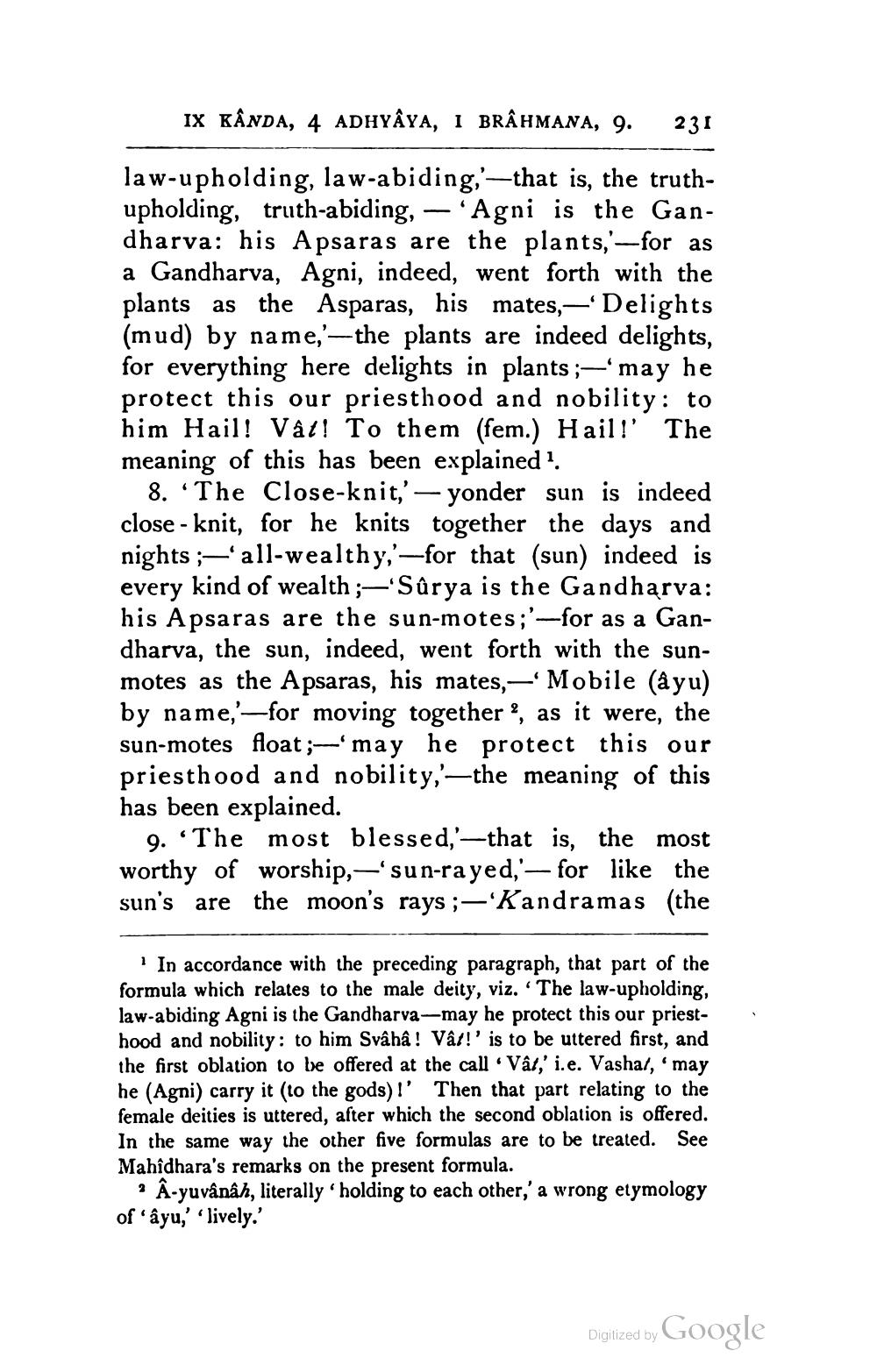________________
IX KÂNDA, 4 ADHYAYA, I BRÂHMANA, 9. 231
law-upholding, law-abiding,'-that is, the truthupholding, truth-abiding, 'Agni is the Gandharva: his Apsaras are the plants,-for as a Gandharva, Agni, indeed, went forth with the plants as the Asparas, his mates, 'Delights (mud) by name,'-the plants are indeed delights, for everything here delights in plants;-may he protect this our priesthood and nobility: to him Hail! Vât! To them (fem.) Hail!' The meaning of this has been explained1.
8. The Close-knit,' - yonder sun is indeed close-knit, for he knits together the days and nights; all-wealthy,'-for that (sun) indeed is every kind of wealth;-'Sûrya is the Gandharva: his Apsaras are the sun-motes;'-for as a Gandharva, the sun, indeed, went forth with the sunmotes as the Apsaras, his mates,- Mobile (âyu) by name,' for moving together, as it were, the sun-motes float;-'may he protect this our priesthood and nobility,'-the meaning of this has been explained.
9. The most blessed,'-that is, the most worthy of worship,-sun-rayed,'- for like the sun's are the moon's rays;-Kandramas (the
1 In accordance with the preceding paragraph, that part of the formula which relates to the male deity, viz. 'The law-upholding, law-abiding Agni is the Gandharva-may he protect this our priesthood and nobility: to him Svâhâ! Vâ!' is to be uttered first, and the first oblation to be offered at the call 'Vât,' i.e. Vasha/, may he (Agni) carry it (to the gods)!' Then that part relating to the female deities is uttered, after which the second oblation is offered. In the same way the other five formulas are to be treated. See Mahîdhara's remarks on the present formula.
Â-yuvânâh, literally holding to each other,' a wrong etymology of 'âyu,' 'lively.'
2
Digitized by
Google




